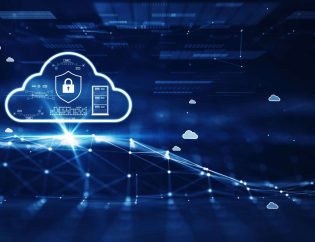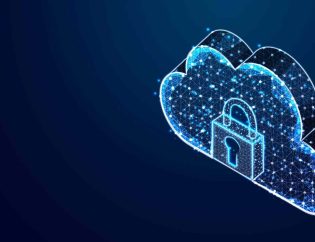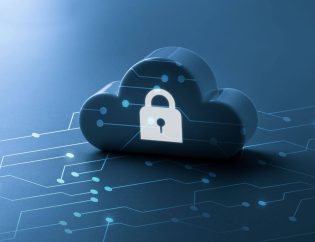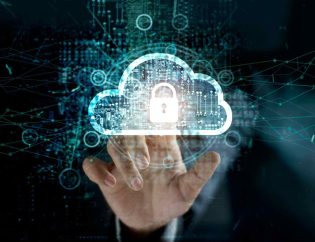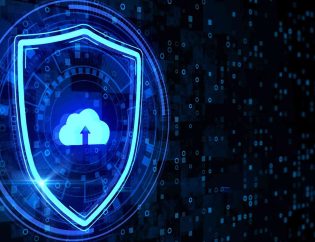
Table of Contents
Introduction
What is Cloud Security and Network Security?
Cloud Security vs. Network Security: Key Differences
Why a Strong Security Strategy is Essential
Simple Ways to Keep Your Data Safe
Keeping Data Safe in Different Systems
Essential Security Rules for Businesses
Challenges in Implementing Security Measures
Conclusion
FAQs
Introduction
In today’s digital world, both cloud security and network security are important for keeping data safe. Businesses need to know the difference between them to build strong protection. This article explains what cloud security and network security are, how they differ and why both are needed for complete cybersecurity.
What is Cloud Security and Network Security?
Cloud Security
Cloud security is all about keeping data, apps and services safe when they are stored online. Since many businesses use the cloud to store important information, strong security is needed to protect it from hackers and cyber threats. Cloud security includes:
- Data encryption: Locks up sensitive information so only authorized people can read it.
- Identity and Access Management (IAM): Makes sure only the right people can access cloud data.
- Threat detection and prevention: Finds and stops cyber threats before they cause harm.
- Following security rules: Helps businesses follow legal and industry standards to keep customer data safe.
Network Security
Network security focuses on protecting a company’s internal systems and data as they travel between computers and other devices. It helps prevent hacking, viruses and cyberattacks. Some key parts of network security include:
- Firewalls: Act as a security gate, allowing only safe internet traffic in and out.
- Intrusion Detection and Prevention Systems (IDPS): Watches for suspicious activity and stops threats.
- VPNs (Virtual Private Networks): Creates a secure internet connection, especially for remote workers.
- Endpoint security: Protects devices like computers, phones and tablets from cyber threats.
Both cloud security and network security are important to keep businesses safe from cyberattacks, data theft and unauthorized access.
Cloud Security vs. Network Security: Key Differences
| Feature | Cloud Security | Network Security |
| Scope | Secures cloud-based assets | Secures on-premises networks |
| Control | Managed by cloud providers and users | Managed by internal IT teams |
| Threats | Data breaches, misconfigurations, account hijacking | Malware, DDoS attacks, unauthorized access |
| Security Measures | IAM, encryption, SIEM, compliance monitoring | Firewalls, VPNs, endpoint protection |
| Accessibility | Cloud-based, accessible from anywhere | Limited to internal network users |
Why a Strong Security Strategy is Essential
Using just one type of security can leave gaps that hackers can take advantage of. To stay safe, businesses need a complete security plan. Here’s why:
- Protecting Different Systems: Many businesses use both online cloud storage and office networks. If one is not secure, hackers can find a way in.
- Keeping Important Data Safe: Companies store valuable data in the cloud, but without proper protection, cybercriminals can steal or leak it. This can cause big problems, like losing customer trust or facing legal trouble.
- Stopping Cyber Attacks: Hackers use many tricks to break into systems, like stealing passwords or sending viruses. Good security helps stop these threats before they cause harm.
- Avoiding Business Disruptions: Cyberattacks can shut down systems and cost businesses time and money. Strong security keeps everything running smoothly.
A good security plan protects data, stops attacks and helps businesses work without interruptions.
Simple Ways to Keep Your Data Safe
Keeping your data safe is important for any business. Here are some easy steps to protect your systems from cyber threats.
How to Keep Cloud Data Safe:
- Use Extra Login Security (MFA): Multi-Factor Authentication (MFA) means you need more than just a password to log in, like a code sent to your phone. This makes it harder for hackers to break in.
- Lock Your Data with Encryption: Encryption scrambles your data so that only the right people can read it, keeping it safe from hackers.
- Check for Security Problems Regularly: Cloud Security Posture Management (CSPM) tools help find and fix mistakes, like weak passwords or wrong settings.
- Watch for Unusual Activity: Keeping an eye on activity logs helps spot anything suspicious, like someone trying to log in without permission.
How to Keep Your Network Safe:
- Keep Firewalls and Security Tools Updated: Firewalls and security systems protect your network, but they need regular updates to block new threats.
- Use Strong Passwords: Weak passwords are easy to guess. Using strong, unique passwords and changing them often helps keep accounts safe.
- Separate Important Data: Dividing your network into sections helps protect important information, so if hackers get into one part, they can’t reach everything.
- Check Security Often: Regular security checks help find and fix weaknesses before hackers can use them to attack.
Keeping Data Safe in Different Systems
Protecting data is very important for businesses that use different types of technology. Whether the data is stored in the cloud or within a company’s network, it must be safe from hackers and cyber threats. Here’s why keeping data secure matters:
- Stop Data Theft: Hackers try to steal personal and business information, like customer details and money-related records. Good security helps prevent this.
- Avoid Work Disruptions: Cyberattacks can slow down or stop a company’s daily work. Strong security ensures everything runs smoothly.
- Follow Security Rules: Many industries have strict rules about keeping data safe. If businesses don’t follow them, they may face legal problems and heavy fines.
- Gain Customer Trust: People want to know their personal information is secure. Businesses that protect data build a good reputation and customer loyalty.
Essential Security Rules for Businesses
Businesses need to follow certain security rules to protect data and avoid legal problems. These rules help keep customer and company information safe from hackers. Some important ones are:
- GDPR (General Data Protection Regulation): A law in Europe that protects people’s personal information. Companies must keep customer data private and secure.
- HIPAA (Health Insurance Portability and Accountability Act): A rule for healthcare organizations to keep patient records safe from leaks or misuse.
- ISO 27001: A global standard that helps businesses set up strong security systems to protect important data.
- NIST (National Institute of Standards and Technology) Framework: A guide that helps companies improve their security and reduce cyber risks.
Challenges in Implementing Security Measures
Keeping cloud and network systems safe is not always easy. Businesses face many problems when trying to protect their data. Some common issues include:
- Not Enough Experts: Many companies cannot find skilled people to handle cybersecurity. This makes it harder to stop cyber threats.
- Difficult to Manage: Businesses use both cloud storage and traditional networks, which makes security more complicated. Protecting everything requires special knowledge and tools.
- Changing Rules: Security rules change often and businesses must follow them. If they don’t, they may face legal trouble or fines.
- Not Enough Money: Some businesses do not have a big budget for security. Without enough funds, they may not be able to get the best tools or experts to protect their data.
Cloud security safeguards your data in the cloud, while network security defends your on-prem systems both are crucial for complete protection🌐🔐 #CyberSecurity #CloudSecurity #NetworkSecurity
— Hyper Secure (@HyperSecure) February 26, 2025
Customer Testimonial
“Since implementing a combination of cloud security and network security solutions, our organization has significantly reduced cyber threats. Hyper Secure provided a tailored approach that ensured our hybrid environment was fully protected.” – IT Manager, XYZ Corp.
Conclusion
Keeping data safe is very important for every business. Both cloud security and network security help protect important information from cyber threats. Companies should use both to stay safe from hackers and data breaches.
How Hyper Secure Helps
Hyper Secure provides strong security solutions to protect both cloud and network systems. With advanced tools and expert support, Hyper Secure helps businesses keep their data safe, follow security rules and prevent cyberattacks. Investing in the right security measures ensures smooth operations and peace of mind.
FAQs
What is the main difference between cloud security and network security?
Cloud security protects online data and services, while network security secures internal systems and connections from cyber threats.
Can a company rely only on cloud security?
No, a mix of both cloud and network security provides stronger protection against cyber risks.
What are common threats to cloud environments?
Data breaches, misconfigurations, insider threats and account hijacking are major security concerns.
Why is network security still important if I use cloud services?
It helps secure devices and control access, reducing the risk of unauthorized entry and cyberattacks.
What are the best practices for maintaining strong security?
Using encryption, multi-factor authentication, regular security audits and continuous monitoring helps protect both cloud and on-premises environments.
